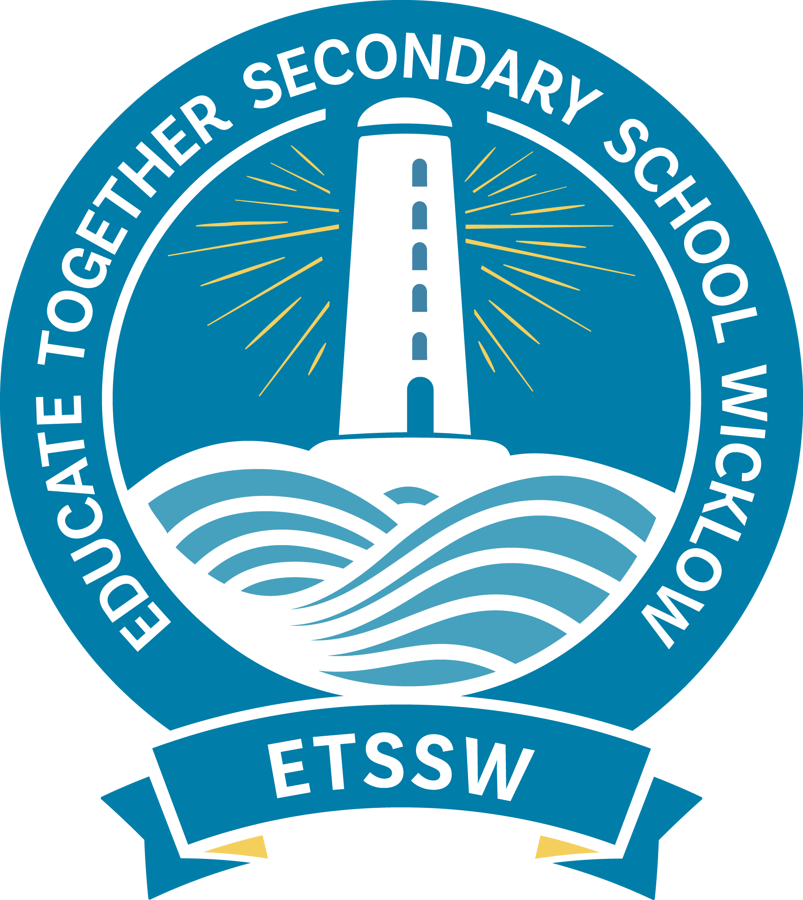METHODOLOGY
ETSS Wicklow is interested in all methodologies and classroom activities that create a student-centred approach to learning. Below is a menu of activities/strategies:
IPADS
- Experience different types of learning as part of our blended learning approach (Visual, Aural, Reading, Kinaesthetic)
- Collaborate in projects and presentations
- Access an unlimited well of resources
- Learn through a more customized learning approach
- Use as an organisational tool
- Experience greater engagement in learning activities
- Gather primary sources
- Share tasks in pairs and groups
- Use as 'Show Me' boards
- Make films
THEME WEEKS
Nine theme weeks during the year allow us to plan for additional innovative ways of approaching learning:
- History Week
- European Languages Week
- Mathematics Week
- Science Week
- Wellbeing Week
- Chess Week
- Seachtain Na Gaeilge Week
- Arts Week
- Active Citizenship Week
ACTIVE READING STRATEGIES:
- Pre-reading activities
- Annotating
- Identifying patterns
- Visual texts – symbolism, images
- Analyzing assumptions, discovering deeper arguments, responding with arguments of your own
GENERATING IDEAS:
- Freewriting
– no editing function - just write
- Clustering
– draw some kind of picture to represent ideas and use that picture to
show relationships between a central, general idea and several more-focused
subordinate ideas
- Brainstorming – write down every idea without evaluating them – don't worry about writing complete sentences - just move to the next idea quickly
- Reverse Brainstorming - write down every idea to create the opposite effect of what you are considering - find solutions through them
GROUP WORK - ASSIGN ROLES
Groups work better when everyone knows their role - below is one suggested approach:
- Group Leader (Chairperson)
- Group Note-taker
- Group Devil's Advocate
- Group Pacifier
- Homework assignments prior to group work to help everything get off to a good start
- Group work based on a series of smaller tasks with time limits for each element (e.g. questions to discuss, time to prepare summary notes, feedback to class)
- Send envoys to other groups – give them a reason for listening (e.g. they need to find the answer to a particular question which only the other groups are dealing with)
- Allow time after group discussions for note-taking (focus on talk time during group work sessions)
- Adapt the group work philosophy that 'it’s the discussion that counts, not the product'
- Use hot-seating with one of the teachers/students in the role of an expert answering questions from the class groups
- Share projects between class groups
- Inter-class competitions (e.g. board races, quizzes, memory games)
- Festival of Learning - classes join together and divide into random groups to work on tasks - sessions can end with group feedback, tableau, mime, film productions, displays of primary sources etc...)
- Test Competitions - students of two classes work together as class groups to show all their knowledge on a topic e.g. to complete the same task on half a whiteboard in a set amount of time (nominate writers and audience prompters) - then teachers give feedback and choose the winning team
- Class Exchange - each class shares a topic they have recently learned with another class
- Pre-Production;
- Production
- Post-Production
- Advertisements
- Video Letters
- Infographics
- Surveys
- Animation Films
- Autobiographies
- Motivational Films
- Instructional Films/Tutorials
- Split-Screen Films
- Top Ten Lists
- Reaction Films
DEBATING (TRY DIFFERENT STYLES)
- British Parliamentary Debating
- American Parliamentary Debating
- Mace Format
- American Public Forum Debating Format
- Dotmocracy
- Switch (1 v 1 debate game - pair work with one person proposing a topic for one minute and then the other opposing that topic for one minute)
TALK CLASSES
In every subject, talk classes can be a great way to revise by developing a list of talking points and working through them - students can add more talking points as the exercise develops
WRITING CLASSES
Develop notes on a topic - write creatively - rewrite something and improve it - writing classes can be great for reflection, revision and creativity
JUNIOR CYCLE FOR TEACHERS RESOURCE WEBSITE
Resource of recommended classroom strategies
 A New Approach to Education
A New Approach to Education